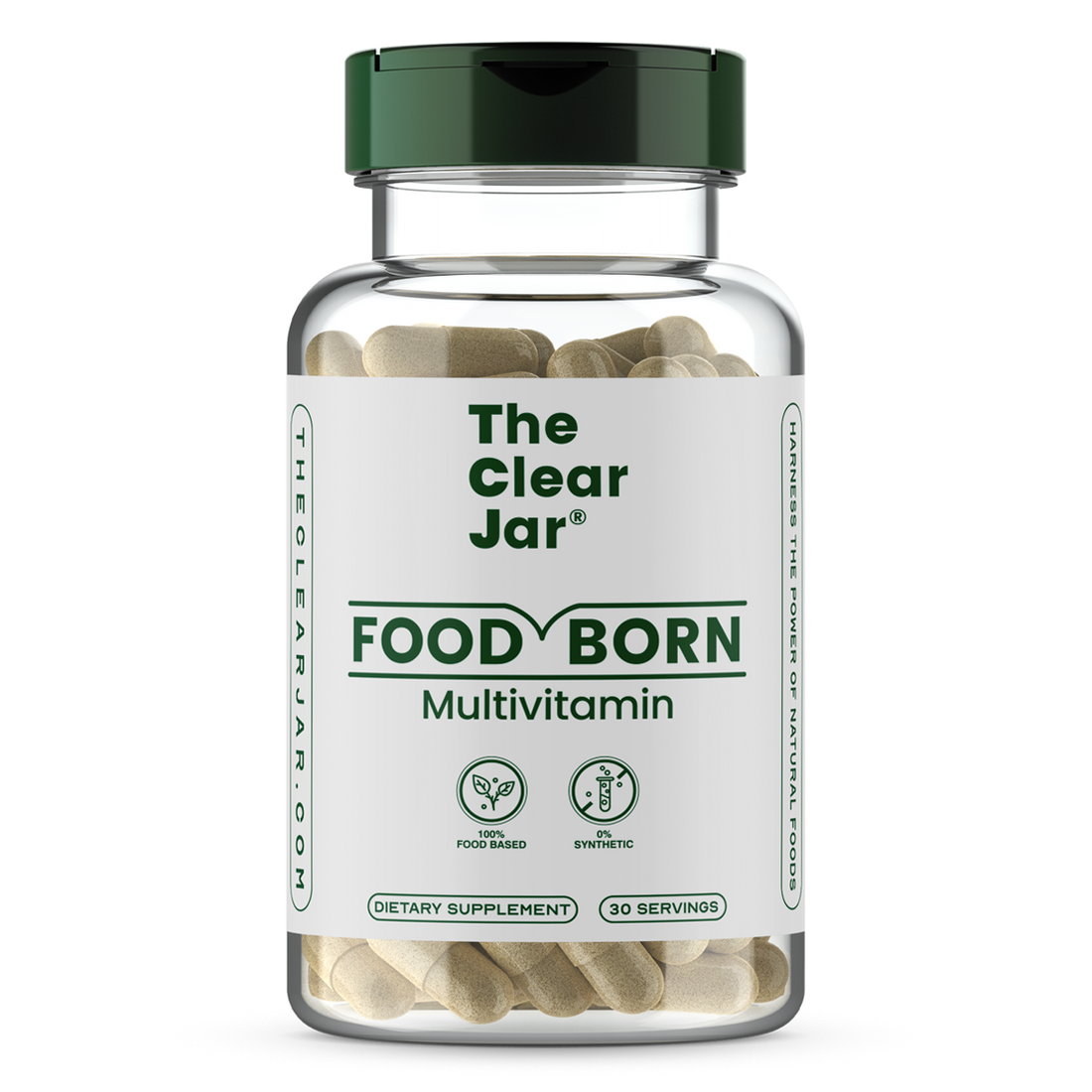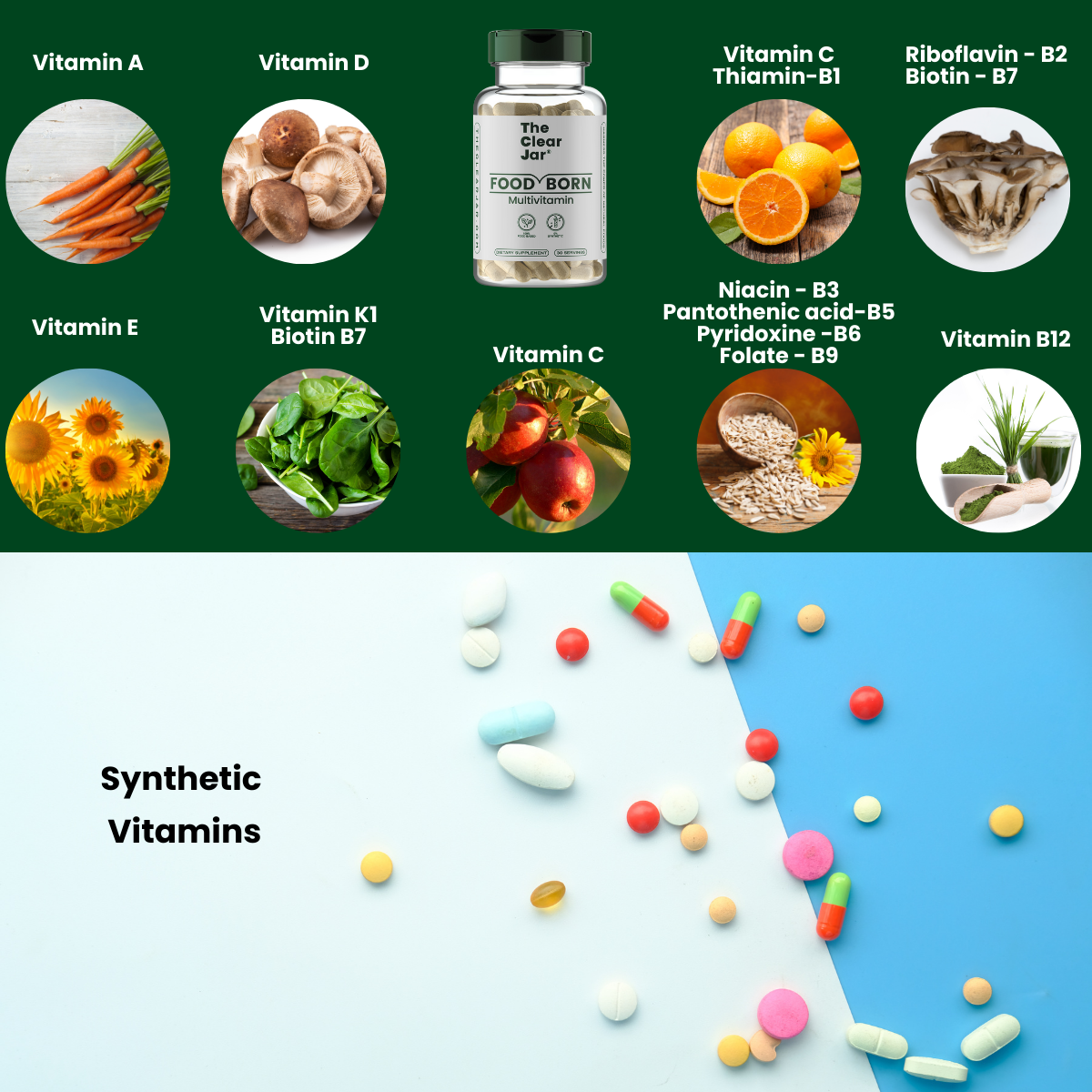Choosing food-based vitamins over synthetic ones offers several advantages rooted in their natural origin, bioavailability, and holistic benefits:
1. Better Absorption and Bioavailability
Food-based vitamins are typically paired with natural cofactors like enzymes, phytonutrients, and minerals that enhance their absorption and utilization by the body.
Synthetic vitamins may lack these cofactors, making them less effective or harder for the body to recognize and metabolize.
2. Gentler on the Stomach
Food-born vitamins are often easier on the digestive system because they mimic the form found in whole foods. This reduces the likelihood of side effects like nausea or stomach irritation, which can occur with synthetic forms.
3. Synergistic Nutrient Profiles
Food-sourced vitamins often come with other naturally occurring nutrients, such as antioxidants, bioflavonoids, or fiber, which work together to support optimal health. Synthetic vitamins isolate a single nutrient, missing out on this natural synergy.
4. Fewer Additives and Chemicals
Food-based vitamins are derived from whole food sources, reducing the risk of unwanted synthetic fillers, binders, or artificial colors often found in synthetic supplements.
5. Alignment with Natural Processes
The body is designed to absorb and process nutrients from natural food sources, making food-based vitamins a more intuitive and harmonious choice for overall health.
6. Environmentally Conscious
Food-based vitamins are often sourced sustainably, reducing the environmental impact compared to the chemical-intensive production of synthetic vitamins.














